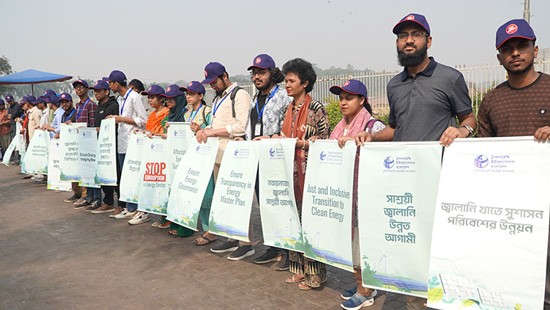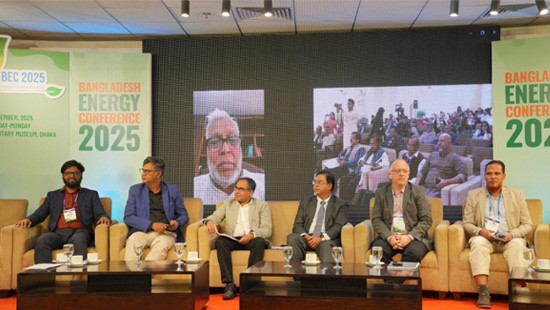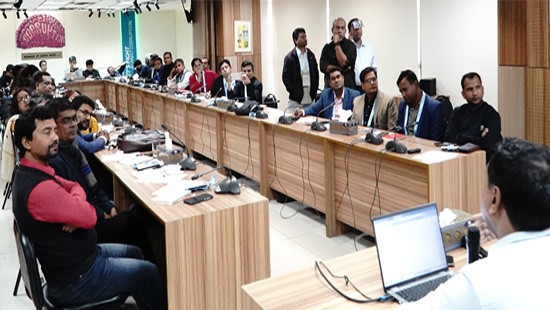Published: 30 January 2024

Transparency International's Corruption Perceptions Index (CPI) 2023 paints a bleak picture of global governance, highlighting the intricate link between corruption and injustice. According to TI, the global trend of weakening justice systems is reducing accountability for public officials, which allows corruption to thrive.
TIB unveiled the CPI 2023 in a press conference at its Dhaka Office simultaneously with all other Transparency International chapters globally.
The index categorises 180 countries based on perceived corruption levels. This year the index reveals how eroding democratic practices and resurgence of authoritarian regimes have weakened judicial and administrative systems globally, including in Bangladesh.
Scores below 50 on the index indicate a 'serious corruption problem', and globally, 105 countries (58.33%) score below the average of 43, indicating a 'very serious corruption problem' affecting over 80% of the world's population.
The data underscores that the countries with robust democratic regimes (classified according to Democracy Index of the Economic Intelligence Unit) protecting civil and political rights are more effective in combating corruption, with full democracies scoring an average of 73, and authoritarian regimes score an average of 29. Denmark scored the highest (90) in the index, making it one of the cleanest countries. Finland is second with a score of 87, and New Zealand is third with a score of 85. At the bottom of the CPI is Somalia with a score of 11. South Sudan, Syria, and Venezuela are jointly second from the bottom on the list with a score of 13, and Yemen is third with an overall score of 16.

In comparison, Bangladesh’s score of 24 out of 100 is even lower than the average score of authoritarian regimes. The country’s latest CPI score is also the lowest since 2012. With a one-point decrease in the score from 25 to 24 in 2023, Bangladesh is now positioned at 10th from the bottom and 149th from the top, compared to 12th and 147th in 2022.

Within the Asia-Pacific Region, Bangladesh has the fourth lowest score, surpassing only Afghanistan, Cambodia, Myanmar, and North Korea. Only Bhutan stands out with a score of 68 in the South Asia region, significantly higher than the global average. Besides, India scores 39, Pakistan 29, and Nepal 35.

Why Bangladesh Continues to Suffer from Corruption
Corruption remains pervasive in Bangladesh, with recent years witnessing a resurgence of irregularities fueled by political interference, impunity, inadequate regulation, and unchecked abuse of power. The multifaceted nature of the issue extends to a variety of factors, and a comprehensive overview highlights various reasons for the persistent corruption in Bangladesh.

How Bangladesh Can Do Better
TIB proposes a 5-point plan for improvement. It calls for challenging impunity in corruption cases and depoliticising key state institutions. Additionally, safeguarding strategic sectors from policy capture and conflicts of interest is emphasised. TIB suggests preserving press freedom and overall freedom of speech so that corruption can be challenged without fear of repression. It also states the importance of promoting a paradigm shift in political and bureaucratic culture to discourage positions being viewed as licenses for personal gain.
For more details, visit - ti-bangladesh.org/cpi







